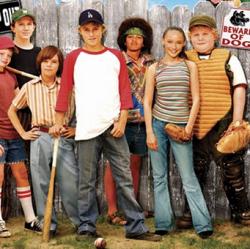 If you’re the parent of a child involved in organized sports, you are undoubtedly aware of how competitive playing a game has become. And it’s not the children who are competitive – it’s the parents. Sure, many of the kids want to get in there and do well at their sport, but the parents push them to do better. Many are finding that other parents have outdone them, enrolling their kids in special training camps, instructional sessions and skill drills in hopes they’ll make it in a highly-competitive league. They plead with teachers and school administrators to do what they can to give their children better grades so high-profile college teams won’t dismiss them. Recreational leagues can be cut-throat. Parents scream at the children and coaches from the sidelines during games. And this all starts – incredibly – in grade school.
If you’re the parent of a child involved in organized sports, you are undoubtedly aware of how competitive playing a game has become. And it’s not the children who are competitive – it’s the parents. Sure, many of the kids want to get in there and do well at their sport, but the parents push them to do better. Many are finding that other parents have outdone them, enrolling their kids in special training camps, instructional sessions and skill drills in hopes they’ll make it in a highly-competitive league. They plead with teachers and school administrators to do what they can to give their children better grades so high-profile college teams won’t dismiss them. Recreational leagues can be cut-throat. Parents scream at the children and coaches from the sidelines during games. And this all starts – incredibly – in grade school.
But kids, for the most part, don’t want to be in a highly-competitive sports league. They just want to play. Sometimes it seems like there’s no league for them – the ones who just want to have fun and don’t have their, or their parents’, sights set on a high level of performance in school or getting an athletic scholarship, as rare as they are. The ones who just want fun get left behind.
In her book The Gift of Failure, Jessica Lahey relates how school administrators and coaches are seeing a trend in middle-school toward more tournaments designed to showcase individual athletes to college coaches – something that used to be found mainly in high school. Lahey writes about the phenomenon:
…Childhood sports are no longer about play. A high school basketball coach lamented: “If only my players wanted to do it as badly as their parents do.” For many kids and their parents, sports have become as much, if not more, about planning for their college applications than about fun and exercise. Competition for the top spots in high school and college sports is becoming so intense, it’s no wonder children are stressed out and under great pressure to perform at younger and younger ages.
For sure, some, if not most, of the blame rests with parents who see sports as an easier and more glamorous way to try to get their children into a high-profile college than pure academics. As the coach inferred, parents are putting their effort into sports training for their kids instead of academic training. Any coach wants to see their players win, of course, but most want to see them having fun too.
When you put all the pieces together, it’s easy to see that Scouting offers not only fun for the participants but a real opportunity to develop a young person in a multidisciplinary way. It’s not just soccer, or hockey, or gymnastics – Scouting helps a young person grow in many ways. They learn about themselves and the world around them, how to be a good citizen and be helpful, to take care of themselves independently, to save a life or mend a cut, to survive in the outdoors, to lead and be led, to explore new interests, to be comfortable dealing with adults – the list goes on. A young man who follows Scouting’s trail to Eagle is all these things and more, and stands a greater chance of getting into a prestigious college than one who can hit a ball or catch a pass.
And it’s all wrapped up in the fun that comes with Scouting.
It’s not the boys that need convincing of this, though – it’s their parents. Many just see Scouting as another once-a-week club. If parents would put the same effort into supporting their boys in their Scouting activities as they do their sports participation, their sons would be so much farther ahead than those who concentrate only on getting into that exclusive training camp.
As Scouters, it’s our job to fully believe in the advantages that Scouting can give our young people, to convince parents that it’s possible, and to properly deliver the program so every boy – not just the star players – can reap the benefits that come from being a Scout and can be part of our “I just want to play” league.
Image: Poster for “Sandlot 2” via Wikipedia
This post first appeared on Bobwhite Blather.


